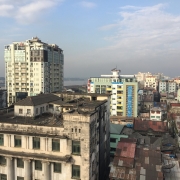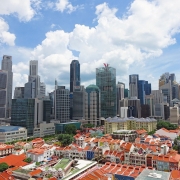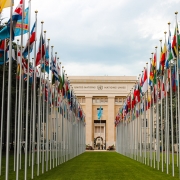What is financial liberalisation?
Topic of Study [For H2 History Students]:
Paper 2: Economic Development after Independence
Section B: Essay Writing
Theme II Chapter 1: Paths to Economic Development
The Pursuit of Economic Growth
As governments in independent Southeast Asian states raced to advance their economies through various approaches, financial liberalisation became of the pivotal efforts in fulfilling their targets. This trend was largely observed by the late 1980s across the nations in Southeast Asia.
Vietnam: Doi Moi
In 1986, Vietnam introduced free-market economic reforms known as Doi Moi (“economic renovation”) to revive its economy and spur growth. Led by the General secretary Nguyen Van Linh, the Vietnamese government passed the Foreign Investment Law (1987) that allowed foreign ownership for firms investing in areas like consumer goods. Two years later, the government floated the exchange rate, which supported further liberalisation of markets.
Thailand: Currency devaluation
In early 1980s, the Prem government sought to attract foreign investments to support its export-oriented industrialisation (EOI) policies and correct a trade deficit. In November 1984, the Thai baht was devaluated by 15%. This proved beneficial as foreign investments from Japan surged to $27.9 billion in 1990. In addition, the Bangkok International Banking Facility (BIBF) was set up in 1993, which provided tax incentives to its banks.
Singapore: Export Promotion
In comparison with its regional counterparts, Singapore embarked on financial liberalisation at a relatively earlier stage due to its inherent constraints, such as limited land size. As such, the government adopted EOI in the late 1960s, as observed by the Export Expansion Incentives Act (1967) that reduced the tax rate for selected industries to 4% for 15 years.
On 1 January 1971, the Monetary Authority of Singapore (MAS) was established. The MAS was granted the authority to regulate the financial services sector in Singapore. The MAS maintained a strong and stable exchange rate to attract foreign investments.
A Brewing Storm: The Washington Consensus
Against the backdrop of Crisis Decades that plagued many developed and developing economies in the 1970s and 1980s, particularly the Third World Debt Crisis, British economist John Williamson introduced the “Washington Consensus” term in 1989.
At that time, USA proposed that both the World Bank and the International Monetary Fund (IMF) should support debt management through a series of liberal reforms. These structural reforms included financial liberalisation, flexible exchange rates and free trade. In return, these developing countries would receive loans.
However, the increased emphasis on liberalisation proved disastrous to Southeast Asian economies. Without adequate regulatory frameworks, the adverse effects of currency speculation then triggered the Asian Financial Crisis in 1997.
What can we learn from this article?
Consider the following question:
– Assess the significance of financial liberalisation in shaping the economic growth of Southeast Asian states after independence [to be discussed in class].
Join our JC History Tuition and find out how you can apply your knowledge of Paths to Economic Development as well as other topics in the A Level History syllabus to essay and source based case study questions effectively. Our programmes are conducted online to support students taking either H1 or H2 History. Get feedback on how your answers can be further improved by consulting our JC History Tutor.
The H2 and H1 History Tuition feature online discussion and writing practices to enhance your knowledge application skills. Get useful study notes and clarify your doubts on the subject with the tutor. You can also follow our Telegram Channel to get useful updates.
We have other JC tuition classes, such as JC Math Tuition and JC Chemistry Tuition. For Secondary Tuition, we provide Secondary English Tuition, Secondary Math tuition, Secondary Chemistry Tuition, Social Studies Tuition, Geography, History Tuition and Secondary Economics Tuition. For Primary Tuition, we have Primary English, Math and Science Tuition. Call 9658 5789 to find out more.











